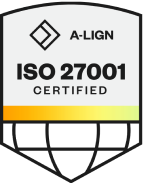Transitioning payroll systems can be daunting, especially with new concepts like Employee Central Payroll (ECP). But don’t worry! ECP is essentially a cloud-based version of the familiar SAP On-Premise Payroll system, with some added benefits.
Key Advantages of ECP
- Cloud-Based: Eliminate expensive hardware and IT maintenance costs.
- Payroll Control Center: Streamline payroll processes and monitor them in real-time for improved accuracy.
- Seamless SuccessFactors Integration: Simplify HR and payroll management.
- Automatic Tax Updates: Ensure compliance with the latest tax regulations without manual intervention.
Considerations for Migration
While the idea of a direct “lift and shift” from your existing system might be tempting, consider the following:
- Outdated Configurations: Remove unnecessary configurations, such as delimited wage types.
- Evolved Business Processes: Incorporate changes to processes since the initial on-premise implementation.
- New Functionality: Leverage new features introduced by SAP for enhanced efficiency.
- Custom Solutions vs. Standard Configurations: Explore standard configurations that can replace existing custom solutions.
A Strategic Approach: Start, Stop, Continue
To maximize your ECP migration, adopt a “Start, Stop, Continue” approach:
- Start: Identify new processes and functionalities to implement in ECP.
- Stop: Eliminate outdated processes, configurations, and custom programs.
- Continue: After making any necessary adjustments, retain essential elements from your current system, such as indispensable custom reports.
By embracing this approach, you can leverage ECP’s cloud-based benefits, streamline payroll processes, and adapt to evolving business needs.
In conclusion
ECP offers a powerful cloud-based alternative to traditional on-premise payroll systems. By strategically evaluating your current processes and configurations, you can transition smoothly and unlock the full potential of ECP’s robust features and seamless integration with SuccessFactors.



